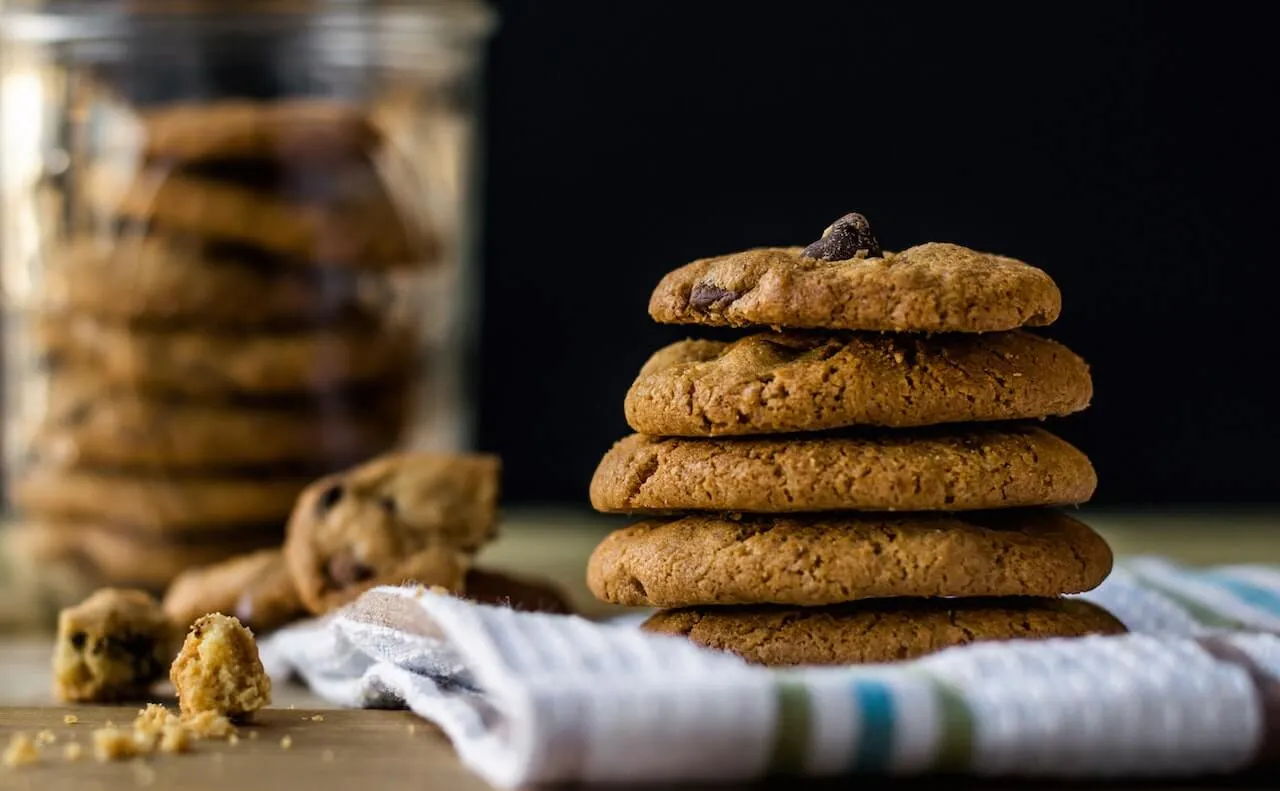Is gluten-free low-carb?
Is gluten-free keto?
Do "gluten-free" and "low carb" go hand in hand? No.
Of course, gluten-free foods can be low carb but not all gluten-free foods are low in carbohydrates.
Gluten, a mix of proteins found in wheat grains, helps provide structure, texture, and flavor to bread, pizza dough, pasta, cereal, and other grain-based foods that may also contain high amounts of carbohydrates.
Low-carb diets, such as keto, paleo, Atkins, and carnivore, tend to be low in or free from gluten since gluten is most commonly found in carbohydrate-rich foods. That said, gluten-free diets and gluten-free foods aren’t necessarily low in carbohydrates.
{{mid-cta}}
What is the Difference Between Low-Carb and Gluten-Free?

A gluten-free diet involves avoiding all gluten but not other food options. As long as the food item does not contain gluten properties, individuals are free to eat the item. This can include high-carb foods like fruits, vegetables, rice, and quinoa.
A low-carbohydrate diet, such as keto or paleo, focuses on limiting all types of carbohydrates. Followers of this eating style prioritize protein-rich foods, healthy fats, and non-starchy vegetables. Often people turn to low-carb diets to lose weight, while followers of a gluten-free diet often adopt this eating style due to dietary reasons including disease, allergy, or gluten intolerance.
<div class="pro-tip"><strong>Also Read: </strong><a href=gluten-intolerance-symptoms>Gluten Intolerance Symptoms: Types, Diagnose, and Treatment</a></a>.</div>
Gluten-Free vs. Low-Carb Diets for Weight Loss

In patients with Celiac disease, following a strict gluten-free diet did improve body mass index in the participants of one study.17 That said, another study on overweight participants with Celiac disease showed that participants gained weight after following a gluten-free diet.18
While little published peer-reviewed research exists to support the efficacy of a gluten-free diet for weight loss in healthy people without Celiac disease, it’s worth noting that simply removing gluten from the diet without any other changes is unlikely to result in weight loss.
Myriad celebrities, wellness influencers, and regular people tout the effectiveness of low-carb diets for weight loss. People have lost weight following low-carb lifestyles like the ketogenic, paleo, Atkins, and carnivore diets. But, similar to gluten-free diets, limiting or removing carbohydrates without any other changes may not lead to sustainable weight loss.
Research doesn’t show definitive support for restricting or eliminating carbohydrates to lose weight. One review of low-carb diets found that caloric restriction and duration of the diet were associated with weight loss but not the restriction of carbs specifically.19
Another study attributed weight loss and weight maintenance to high protein and not low carb in research that compared four types of diets with normal, high, and low amounts of carbs and protein.20
A review of low-fat diets versus low-carb diets for weight loss found effectiveness to be dependent on the individual’s glucose metabolism.21 Those who could handle glucose normally appeared to lose the most weight on a low-fat, high-carb diet. Prediabetic people succeeded more when their diets included low-glycemic, high-fiber whole grains. For overweight and obese diabetics, reduced carbs and relatively higher protein and fat proved beneficial for weight and glycemic control.
Gluten-Free vs. Low-Carb vs. Keto
As mentioned above, there is a myriad of confusion around the differences between keto, low-carb, and gluten-free diets.
While keto is considered a low-carb eating style, it is generally a more restrictive diet than low-carb. Low-carb eating styles promote eating non-starchy vegetables and fruit and encourage consuming healthy fats. In the ketogenic diet, individuals drastically reduce their carbohydrate intake to only 5% of daily consumption, with 70% of calories from fats.
As stated above, a gluten-free eating style does not focus on calories or macronutrients; instead, the goal is to eliminate all gluten products from an individual’s diet.
Gluten-Free or Low Carbs Diet: Which One to Choose?
Studies can tell us the overall impact of a diet on a group of people, but each of us will have our responses to food. However, if a low-carb or gluten-free diet sounds too restrictive or feels too much like a short-term plan, you can use the principles of these eating styles to work with your lifestyle.
Signos can help you better understand your response to food so you can make food choices that match your physiology. Maybe fruit and starchy veggies work well for you, but oatmeal spikes your blood sugar immediately. In this case, you could customize the types of carbs you avoid instead of cutting them out altogether.
Finding a food pattern that matches your lifestyle, makes you feel good, and is sustainable long-term is the ultimate goal, and learning how your body responds to food can help you get there.
Frequently Asked Questions
Can You Be Keto And Gluten-Free?
Many people on the keto diet indulge in gluten-free grains like quinoa, spelt, or teff. You can also look for gluten-free products made with almond flour or coconut flour—these options are usually delicious and keto-friendly!
Is Gluten-Free Bread Good for Low-Carb Diets?
Certain brands of gluten-free bread are available on the market today that would fit in a low-carb diet and allow individuals to stay in ketosis. These breads are often rich in healthy fats and proteins. Be careful to read the nutrition label carefully to ensure an item fits your eating style.
What Are The Benefits of Gluten-Free?
Some data suggest that following a gluten-free diet may help alleviate gastrointestinal symptoms in people with skin conditions, arthritis, irritable bowel syndrome, type 1 diabetes, and neurologic disorders.5
<div class="pro-tip"><strong>Learn More: </strong><a href=gluten-free-diet>Gluten-Free Diet: Is It for You? Benefits & Foods to Try</a>.</div>
Topics discussed in this article:
References
- https://pubmed.ncbi.nlm.nih.gov/28244676/
- https://pubmed.ncbi.nlm.nih.gov/24369326/
- https://pubmed.ncbi.nlm.nih.gov/27341511/
- https://www.mdpi.com/2076-3271/6/4/92/htm
- https://aspenjournals.onlinelibrary.wiley.com/
- https://www.tandfonline.com/doi/full/
- https://www.sciencedirect.com/science/article/
- https://www.ncbi.nlm.nih.gov/pmc/articles/
- https://www.nejm.org/doi/full/10.1056/
- https://link.springer.com/article/
- https://academic.oup.com/jcem/article/
- https://jamanetwork.com/journals/
- https://www.cambridge.org/core/journals/
- https://www.ncbi.nlm.nih.gov/pmc/articles/
- https://www.sciencedirect.com/science/article/
- https://www.tandfonline.com/doi/abs/
- https://journals.lww.com/jcge/Abstract/
- https://journals.lww.com/ajg/Abstract/
- https://www.sciencedirect.com/science/article/
- https://www.sciencedirect.com/science/article/
- https://www.thelancet.com/article/
- https://www.fatsecret.com/calories-nutrition/
- https://www.fatsecret.com/calories-nutrition/usda/sweet-potato
- https://www.fatsecret.com/calories-nutrition/udis/
- https://celiac.org/gluten-free-living/gluten-free-foods/
- https://www.fatsecret.com/calories-nutrition/usda/celery
- https://www.fatsecret.com/calories-nutrition/glutino/
- https://www.fatsecret.com/calories-nutrition/generic/spaghetti




.svg)










.svg)
.svg)
.svg)
.svg)
.svg)
.svg)
.svg)
